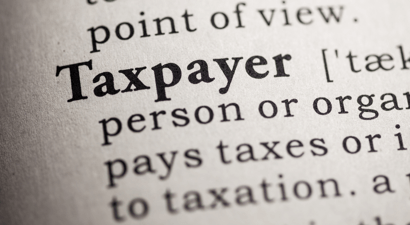Will it be the Luck of the Irish or Will Apple be Left Paying the Bill?
Background
On 30 August 2016, following an in-depth state aid investigation launched in June 2014, the European Commission issued a press release stating that “the European Commission has concluded that Ireland granted undue tax benefits of up to €13 billion to Apple. This is illegal under EU state aid rules, because it allowed Apple to pay substantially less tax than other businesses in the EU. Ireland must now recover the illegal aid”. As a result of its investigation, the European Commission has concluded that two tax rulings issued by Ireland to Apple have substantially and artificially lowered the tax paid by Apple in Ireland since 1991. Apple is the Commission’s latest target in a list that includes Amazon and Starbucks.
Ireland has worked hard to develop a reputation for low corporate taxes, making the country an attractive investment option for multi-national corporations. According to the American Chamber of Commerce in Ireland, more than 700 U.S. companies have established branches in the country. The legal certainty offered by Ireland to the companies its tax regime has attracted has been severely undermined by the Commission stepping in and questioning the validity of tax agreements 10 years after the fact.
Irish Finance Minister, Michael Noonan, stated that Dublin will appeal the Commission’s decision “to defend the integrity of our tax system, to provide tax certainty to business, and to challenge the encroachment of EU state aid rules into the sovereign member state competence of taxation.” Irish Prime Minister, Enda Kenny, explained the country’s stance, saying:
“It is important that we should appeal the decision to the European Court to get legal clarity and legal certainty on it, and beyond that I make no apology whatsoever for defending the right to appeal this because this is about Ireland, it is about our people, it’s about us as a sovereign nation, actually setting out what we consider our appropriate policies to devise job opportunities and employment careers for our people…”.
On 2 September 2016, Ireland’s coalition government agreed to appeal the European Commission’s decision.
Apple obviously stands firmly with Ireland. In an open letter to the Apple community in Europe, Apple CEO, Tim Cook explained that Apple opened its first European office in 1980 in Cork, a region with high unemployment and low investment:
“Thirty-six years ago, long before introducing iPhone, iPod or even the Mac, Steve Jobs established Apple’s first operations in Europe. At the time, the company knew that in order to serve customers in Europe, it would need a base there. So, in October 1980, Apple opened a factory in Cork, Ireland with 60 employees…We have operated continuously in Cork ever since, even through periods of uncertainty about our own business, and today we employ nearly 6,000 people across Ireland.”
What does this decision mean for sovereign tax rulings?
Tax rulings are made by national governments and, according to EU law, individual states themselves need to strike a balance between corporate taxation and economic development. However, the Commission’s decision seems to intrude on sovereign tax. The Commission is claiming that Ireland unfairly allowed Apple to shift the profits of its Irish business (including profits from all Apple’s European operations) into a head office that was only a head office on paper. They claim this “head office” was constructed so that it was not subject to taxation in any country, thus reducing the effective tax rate of key Apple subsidiaries below 1%.
On paper, however, to diminish the argument of sovereign tax control, the Commission’s decision has been based on competition law, and not sovereign fiscal policy. The Commission’s pivotal accusation is that Ireland applied its tax law more favourably for Apple than for other companies, thus distorting competition. The problems with this argument include the fact that, in practice, the reality is that the state aid rules of European competition law are being used to restrict sovereign fiscal policy and that Apple was also not the only beneficiary of such taxation arrangements.
No government is going to willingly hand over control of its national tax rates, but the effect of this decision is that the European Commission is essentially playing the role of a global tax-authority under the guise of enforcing antitrust law. For now, we will have to wait and see how the appeal plays out…





